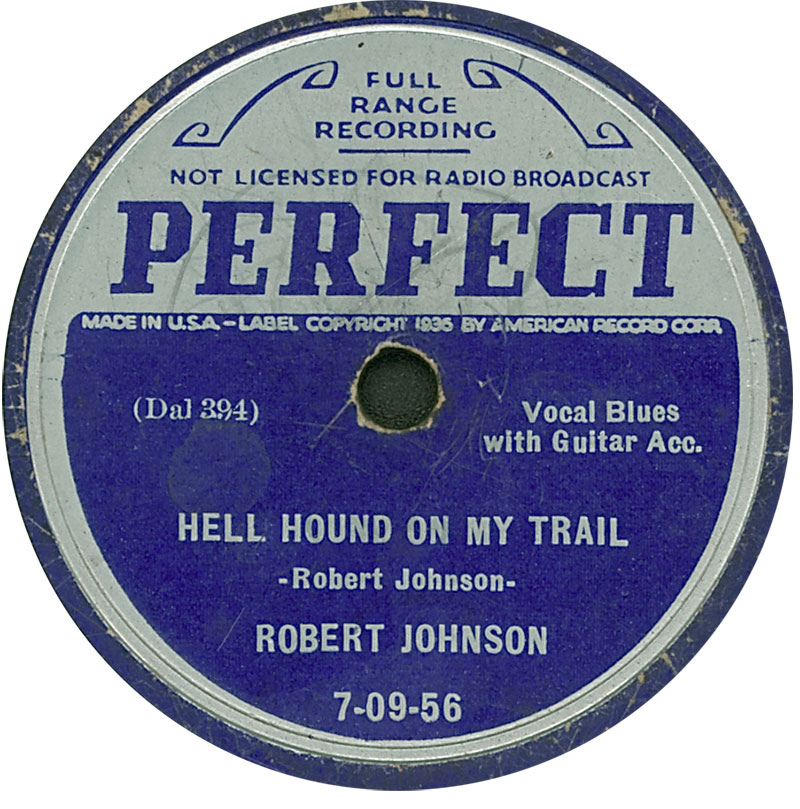 | Hell Hound on My TrailRobert Johnson |
Writer(s): Peter Green, Robert Johnson (see lyrics here) Recorded: June 20, 1937 Released: September 1937 First Charted: -- Peak: -- (Click for codes to charts.) Sales (in millions): -- Airplay/Streaming (in millions): -- radio, 2.1 video, 2.38 streaming |
Awards:Click on award for more details. |
About the Song:This is one of “the deepest and darkest of Robert Johnson's legendary blues masterworks.” BH In his 1992 book Searching for Robert Johnson, Peter Guralnick calls the song “Johnson’s crowning achievement.” Ted Gioia calls “Hell Hound on My Trail” one of Johnson’s “best known and most admired performances – many would say it is his greatest.” TG This “agonized performance” SS is a showcase for “a disturbing vision of a blues poet haunted by spirits, doomed to die before he would ever see the fruits of an alleged deal with the devil.” BH The lyrics focus on “the familiar blues theme of the rambling musician” TG but “the trip takes on darker tones, the traveler is pursued.” TG Music historian Samuel Charters says the first and last verses might be the finest in all of the blues. WK Southern churches at the time suggested hellhounds – mythological hounds that were servants of the devil – were coming to catch sinners. WK Texas Tech University professor Karlos K. Hill speculated that the song might be a reference to bloodhounds used by lynch mobs to track down fugitives. Johnson’s own stepfather, Charles Dodds, changed his name and fled the Mississippi Delta after being threatened with lynching by a white mob. WK Regardless of Johnson’s intent “there is no doubting the harrowed and forsaken depth of Johnson’s performance.” BH Johnson wasn’t the first to reference hell hounds. They are referenced in the Biddleville Quintette’s “Show Pity Lord” (1926), Sylvester Weaver’s “Devil Blues” (1927), and “Funny Paper” Smith’s “Howling Wolf Blues No. 3” (1931). WK There are some lyrics even adapted from Peetie Wheatstraw’s “Police Station Blues” (1932). BH all which made references to hell hounds. WK Johnson proved to be “a master synthesizer, pulling together bits and pieces of existing material and infusing them with something entirely his own.” SS “The melody, the lyrics, and the hellish connection all bore elements of other records Johnson must have heard,” BH most notably “the emotional intensity, guitar tuning and strained singing style” EW of Skip James’ “Devil Got My Woman” from 1931. James’ “Yola My Blues Away” from the same year also exhibited the same tuning and vocal styles. WK Other songs included Johnnie Temple’s “Evil Devil Blues” (1935) and Joe McCoy’s “The Mississippi Mudder” (1934). BH Resources:
Related Links:First posted 9/7/2023; last updated 4/26/2025. |








No comments:
Post a Comment